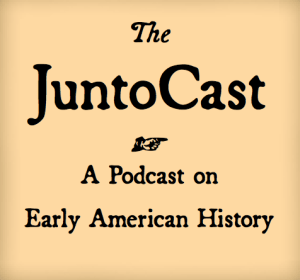Craig Bruce Smith, American Honor: The Creation of the Nation’s Ideals during the Revolutionary Era (Chapel Hill: University of North Carolina Press, 2018).
 In American Honor, Craig Bruce Smith places morals, virtue, and ethics at the center of the American Revolution. Smith argues that in the late-colonial period, understandings of honor transformed. Instead of something hereditable, honor became based on merit. That “ethical transformation” helped bring about the Revolution. Independence then allowed Americans to realize its potential. In a phrase, you might say the American Revolution was “made on honor, sold on merit.”[1] Continue reading
In American Honor, Craig Bruce Smith places morals, virtue, and ethics at the center of the American Revolution. Smith argues that in the late-colonial period, understandings of honor transformed. Instead of something hereditable, honor became based on merit. That “ethical transformation” helped bring about the Revolution. Independence then allowed Americans to realize its potential. In a phrase, you might say the American Revolution was “made on honor, sold on merit.”[1] Continue reading
 We are pleased to host a Q&A with
We are pleased to host a Q&A with 
 This weekend, Mark Lilla, a historian of ideas at Columbia University, published a New York Times op-ed on
This weekend, Mark Lilla, a historian of ideas at Columbia University, published a New York Times op-ed on 


 Here’s our seasonal roundup of new and forthcoming titles. Share your finds below!
Here’s our seasonal roundup of new and forthcoming titles. Share your finds below! 
 We’re happy to bring you the fifteenth episode of “The JuntoCast.”
We’re happy to bring you the fifteenth episode of “The JuntoCast.” 